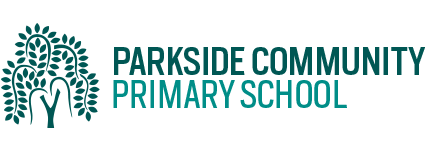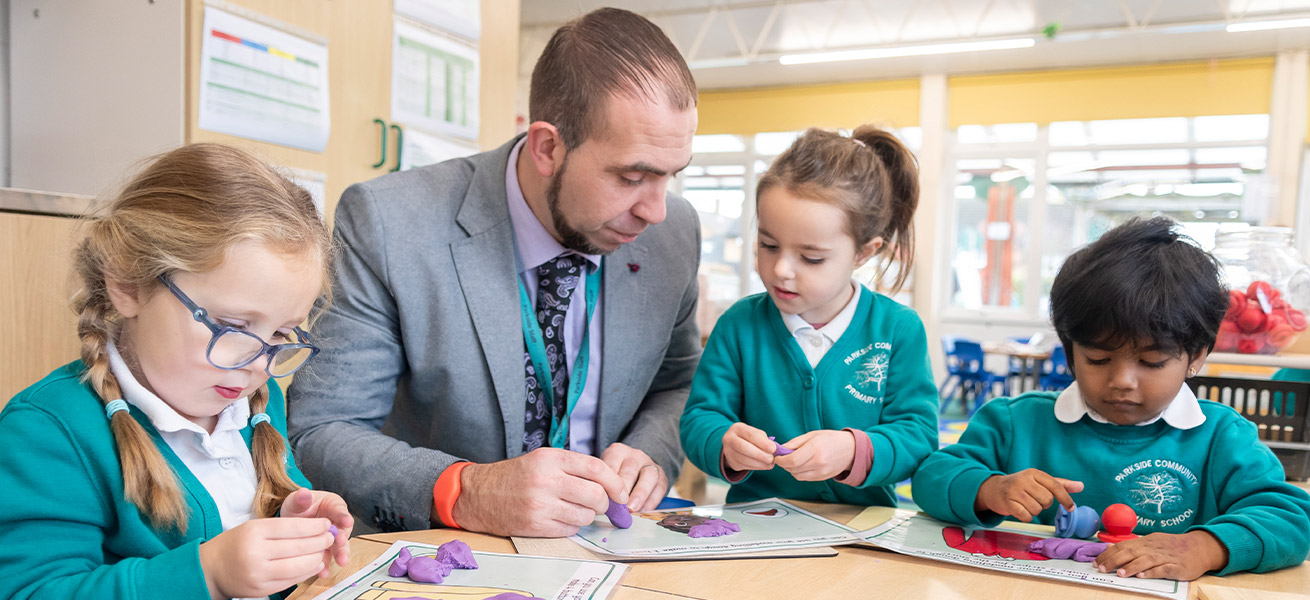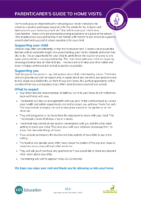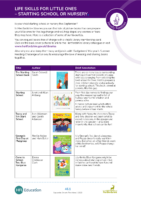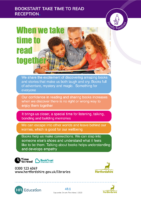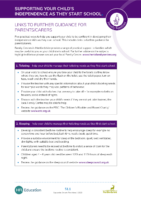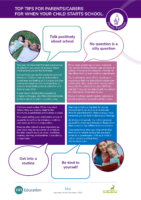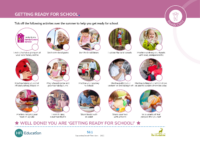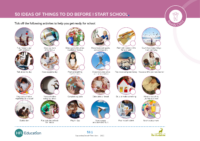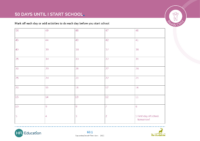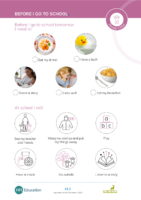Early Years
We aim to develop and broaden the range of children’s learning experiences, to leave them confident, eager and enthusiastic learners who are looking forward to school. We hope to play our part by treating your child as an individual and offering him/her a variety of experiences and activities which are designed to further their development process.
The Curriculum
At Parkside we use Development Matters as a non-statutory guidance to set out the pathways of children’s development in broad ages and stages.
(https://www.gov.uk/government/publications/development-matters–2)
There are seven key features of effective practice:
- The best for every child
- High-quality care
- The curriculum: what we want children to learn
- Pedagogy: helping children to learn
- Assessment: checking what children have learnt
- Self-regulation and executive function
- Partnership with parents
The EYFS curriculum is broken into seven areas of learning. There are three prime areas of learning and these are important because they lay the foundations for children’s success in all other areas of learning and of life:
Communication and Language:
- Listening, Attention and Understanding
- Speaking
This involves giving children the opportunity to use their spoken language to express themselves in a language rich environment, through conversations, role play, storytelling and media.
Personal, Social and Emotional Development:
- Self-Regulation
- Managing Self
- Building Relationships
This involves giving the children the opportunity to develop strong, warm, and supportive relationships with adults in the setting as well as learning how to make friendships, co-operate and resolve conflicts peacefully. The children will be supported in managing their own emotions and taught to develop a positive sense of themselves as well as learning about self-care, healthy eating and managing their own personal needs.
Physical Development:
- Gross Motor Skills
- Fine Motor Skills
This involves teaching children the importance of living a healthy, happy, and active life.
To develop gross motor skills, children will be given the opportunity to develop their core strength, stability, balance, and spatial awareness using a variety of small and large apparatus using the indoor and outdoor environment.
To develop fine motor skills, children will use a wide range of small tools to develop control and proficiency in drawing, cutting, colouring and letter formation.
There are four specific areas of learning that provide the range of experiences and opportunities for children to broaden their knowledge and skills: These four areas are:
Literacy:
- Comprehension
- Word Reading
- Writing
This involves developing a ‘love for reading’ and encouraging children to begin to become independent writers. The children will listen to a wide range of text such as stories, poems, rhymes, and non-fiction text which will ignite their interest and develop their vocabulary, word reading skills and writing for a range of purposes.
Mathematics:
- Number
- Numerical Patterns
This involves developing a positive attitude and interest in mathematics where children are encouraged to talk about their work and have a go as well ensuring that children have a strong grounding and deep understanding of using numbers to 10.
The children will be given the opportunity to practise and improve their counting skills, learn to subitise, and understand the value of numbers, calculate simple addition and subtraction problems, talk about the pattern of numbers, and describe shape, space, and measures.
Understanding the World
- Past and Present
- People, Culture and Communities
- The Natural World
This involves enriching and widening children’s vocabulary by guiding children to make sense of their physical world and their community. Children will be given the opportunity to talk about personal experiences. They will listen to a broad selection of stories, non-fiction, rhymes and poems which will enable them to foster an understanding of our culturally, socially, technologically and ecologically diverse world as well as find about religions, places, nature, animals, people and our immediate and wider environment.
Expressive Arts and Design
- Creating with Materials
- Being Imaginative and Expressive
This involves developing children’s artistic and cultural awareness and supports their imagination and creativity. The children will be given the opportunity to use a wide range of materials and media to express themselves and talk about what they feel, see, and hear as well as engage in role play with their peers.
How I learn? (Characteristics of Effective Learning)
In planning and guiding what children learn, practitioners must reflect on the different rates at which children are developing and adjust their practice appropriately. Three characteristics of effective teaching and learning are:
- playing and exploring – children investigate and experience things, and ‘have a go’
- active learning – children concentrate and keep on trying if they encounter difficulties, and enjoy achievements
- creating and thinking critically – children have and develop their own ideas, make links between ideas, and develop strategies for doing things
Transition to Nursery and Reception
To support smooth transitions before your child starts school we need to work together with parents and carers and share information on how to best to support each child based on their individual needs. This information will help us towards planning activities and a curriculum based around your child’s needs and interests.
Helping my child get ready for school
Our aim is to ensure a smooth transition for your child into Parkside and it is fundamental that you are provided with information that can support your child in being ‘school ready’. Please take time to read and share the following important information with your child.
As a Parent or Carer, how can I help with my child’s learning?
To support smooth transitions before your child starts school we need to work together with parents and carers and share information on how to best to support each child based on their individual needs. This information will help us towards planning activities and a curriculum based around your child’s needs and interests.
Our aim is to ensure a smooth transition for your child into Parkside and it is fundamental that you are provided with information that can support your child in being ‘school ready’. Please take time to read and share the following important information with your child.
To support with learning in all the seven areas please find below a list of fun activities available through free websites that you can access with your child at home which will help in supporting their learning and development in all areas of the early year’s curriculum.
- Oxford Owl Free e-books to read – https://www.oxfordowl.co.uk/for-home/find-a-book/library-page/
- Phonics Play – Lots of free phonics games to play at home – https://www.phonicsplay.co.uk/resources
- Teach you monster to read – https://www.teachyourmonstertoread.com/
- Cbeebies ‘Numberblocks’ – https://www.bbc.co.uk/cbeebies/shows/
- National Geographic Kids – https://www.natgeokids.com/uk/
- Top Marks – https://www.topmarks.co.uk/ Early Years Interactive games and resources to support and develop learning.
- BookTrust – https://www.booktrust.org.uk/ Designed to promote your child’s love of reading with lots of lovely, interactive stories to read and games to play.
- Science Sparks – https://www.science-sparks.com/category/early-years-science-2/ Activities and experiments for EYFS children that offer a range of science based activities and experiments easy to try at home.
- The Woodland Trust – https://www.woodlandtrust.org.uk/ lots of lovely activities to promote outdoor learning such as twig, leaf, tree, seeds and flower. identification cards
